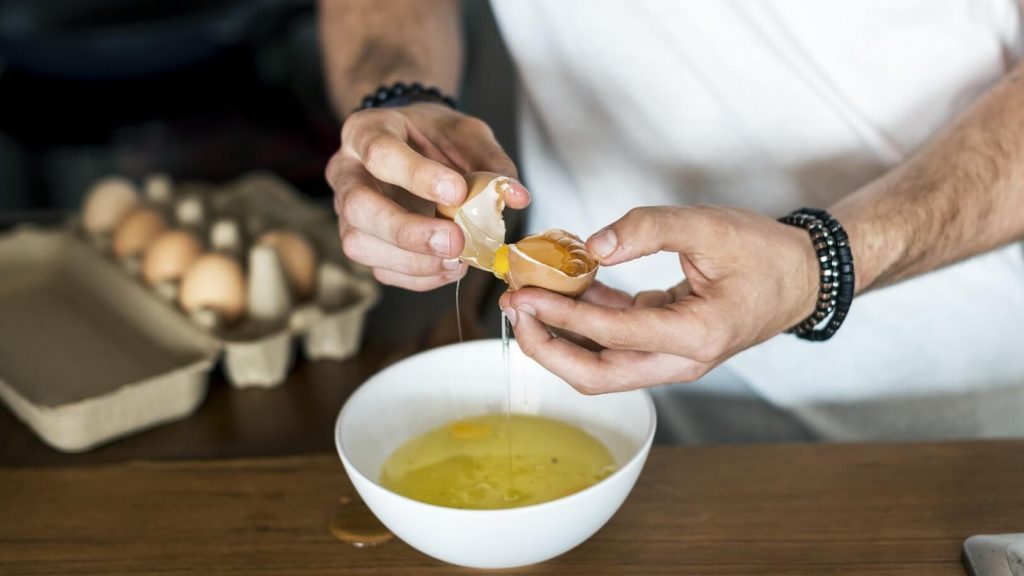Food companies are becoming more invested in seeking out and using vegan eggs instead of chicken eggs, according to industry publication Food Business News. The shift is occurring due to rising consumer demand for plant-based products. But it’s also because of the health risks – like salmonella – associated with chicken eggs.
Earlier this year, 206 million eggs were recalled by major brands including Walmart and Food Lion following reports of a salmonella outbreak.
According to the Food and Drug Administration (FDA), 35 people fell ill from the disease, and 11 were hospitalized. Healthy adults can recover from a bout of salmonella in roughly one week – however, for children, the elderly, and people with weakened immune systems, the disease can be fatal.
The health concern is motivating food companies to look for safer options, such as vegan eggs made from plants. One ingredient that could replace eggs – with a much lower risk of salmonella – is chickpeas (or the water drained from them known as aquafaba). According to Jon Stratford, the sales and marketing manager for Natural Products Inc, a non-GMO and organic soy ingredients company based in Iowa, the ingredient is rising in popularity as a viable plant-based egg.
 “In the last couple of years, the supply of chickpeas and chickpea ingredients has grown exponentially,” said Stratford. “Aquafaba has amazing foaming properties, and possibly one day when it is available in industrial quantities, it might be used to replace egg whites in baked goods and other foods.”
“In the last couple of years, the supply of chickpeas and chickpea ingredients has grown exponentially,” said Stratford. “Aquafaba has amazing foaming properties, and possibly one day when it is available in industrial quantities, it might be used to replace egg whites in baked goods and other foods.”
He added, “I expect we will continue to see [research and development] with chickpea flour as well as other bean-based ingredients as tools to eliminate animal proteins in a wide variety of food categories.”
The vegan liquid JUST Egg, made by plant-based and clean meat company JUST, is also seeing a spike in popularity since its launch earlier this year. Made from mung beans, the product mimics the taste, texture, and appearance of scrambled eggs and can be used for making omelets, quiches, and french toast. In one major retailer, the product even outsold liquid whole chicken eggs in its first week of launch.
Become a CLUBKINDLY member today!


